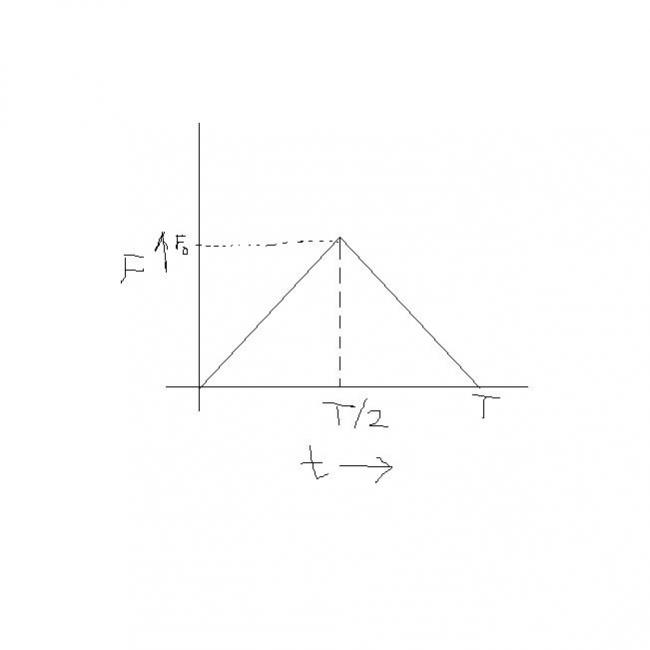yes from impulse-momentum theorem
ΔP = Fdt
==> total change in momentum = ∫Fdt
So, 1/2*F0*T = mu
==> F0 = 2mu/T

a particle of mass 'm' moving with velocity 'u' makes an elastic one-dimensional collision with a stationary particle of mass 'm' . they are in contact for a very brief time T. their force of interaction increases from zero to Fo linearly in time T/2 , and then decreases linearly to zero in a further time T/2. the magnitude of Fo is ??
-
UP 0 DOWN 0 0 6

6 Answers
when a body makes a perfectly elastic colission with a similar body at rest then it comes to the rest...
Use impulse momentum theorem
F.T/2 = mu
Thus, F0=2mu/T
A small additional explanation to the above problem
Integral fo F.dt is given by the area of Force time graph :)
ohhh sry i read it as a wall............... i have very poor reading skills yes then ans will be 2mu/T.... thx bhaiyya for correcting....
haha it is fine :)
I do that in every 1-2 questions every second day :)